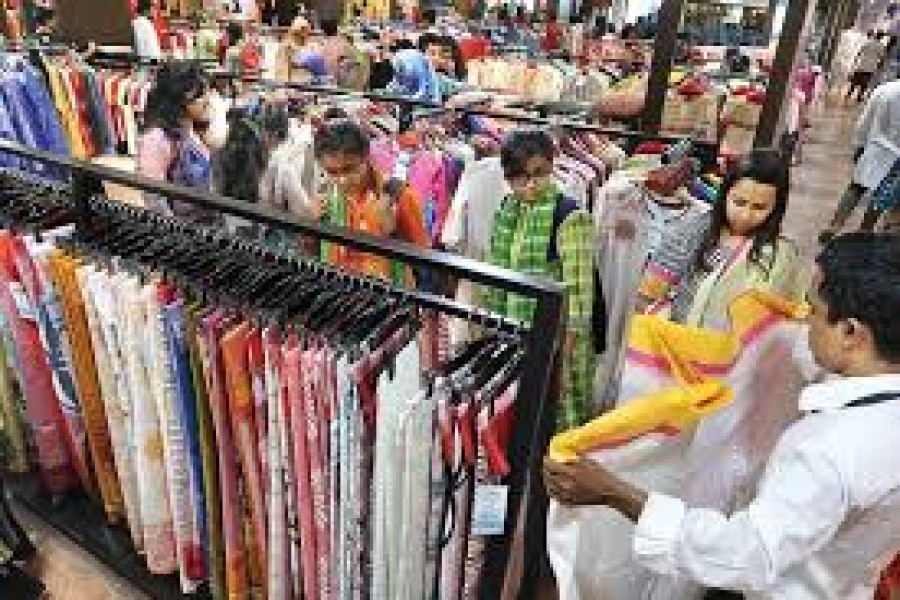Making a choice between life and livelihoods, particularly when it concerns millions of people, is very difficult now. Governments the world over are under pressure to ease the prolonged lockdown in big cities. Actually the trend gets currency with President Trump first indicating reopening of restaurants, cafes, shopping malls etc; amid no steep decline in death from and infection of Covid-19. The World Health Organisation's stern warning that easing lockdown would be unwise and there is most likely to be a second wave of coronavirus attack has largely been ignored.
What is particularly notable is that people in a number of cities in the United States of America started to demonstrate in favour of unlocking the lockdown at times in defiance of governors of their states. Clearly, President Trump's tacit support acted as an incitement. In Europe, though, the hard hit countries like Italy and Spain have started easing restrictions on opening up parks and other public places in a limited way only after the death and infection have come down drastically almost to what is called a flattening point.
The United Kingdom and Germany where both corona cases deaths are on the rise, no concession has been made in maintenance of social and personal distance. It is a fact that China has not witnessed a second wave but Singapore has. Even South Korea, the country that is credited to have managed coronavirus so well, reported a mild increase of cases. But it seems the situation is under control there.
Where does Bangladesh stand in respect of coronavirus control and opening up livelihood avenues? So far Bangladesh's management of both affairs has been moderate. Much of the success has been marred by the indecision and the following confusion over the reopening of garments factories. The indecision and confusion still linger on. Already two dozen garments workers have tested positive and the authority concerned is reported to have expressed the view that further spread of the disease among them might prompt it to close down factories.
It is clear that reopening of garments factories did not follow the gradual and phase-wise guidelines. Factory owners were anxious to avail of the stimulus money offered by the government. They are hardly complying with the social distancing guidelines and some of them have failed to pay the 60 per cent of wages due to their workers.
With the opening up of garments factories, the restriction on people's movement became lax. Before this, the deployment of the army alongside the law enforcement agencies made a discernible impact on public mind. Roads and alleys were nearly empty. When instructions were issued for keeping the outdoor off-limit after 6.0 pm, it produced a more or less desired result.
However, all such good works now look to be negated by the latest decisions to reopen shopping malls and other businesses from May 10 next. Although it has been made conditional by the provision of 'on a limited scale', there is hardly any guarantee of its maintenance. Timing of business outlets upto 4 pm may be extended further because the rush of shoppers is likely to be heavier on account of shorter duration for shopping.
What is particularly galling is the fact that the gazette notification came on the day the country had record corona cases. The next day also saw a similar surge and it may continue for quite sometime. It is not for nothing that the national technical advisory committee on Covid-19 has recommended a review of the decision. The committee has further recommended that any decision on reopening of industries, businesses or relaxation of the shutdown should be arrived at on the basis of opinions from epidemiologists.
Shopping malls in no way deal in what can be considered fundamentally essential for human survival. Rather, drug stores, groceries and kitchen markets must be ensured adequate supply of life-saving medicines and victuals. Better it would be to make arrangements for collecting perishable agricultural produces from farmers in different corners of the country for smooth supply to areas where those have high demands.
The country endured nine-month liberation war and suffered loss of more lives and more extensive damage and destruction of property. This time the nation may not have to wait that long to get rid of coronavirus or at least resume near normal life. So, why is the rush? The government's various programmes and private initiatives may be enough to feed the poor and the vulnerable for another month or a longer period.
The emergency arising out of coronavirus has so far been manageable but the system is under severe stress. Already, members of the police have rescheduled their duty on account of high incidence of infection among them. As many as 1,153 members of the police have tested Covid-19 positive and six of them died. This has definitely told on the surveillance of lockdown.
However, it is the extremely high incidence of infection among physicians that will seriously undermine corona testing and treatment of the disease. Realizing the gravity of the situation, the government has already recruited 2,000 doctors to fight the disease. This is an overpopulous country and it cannot afford the luxury of following American example. Prediction by an expert committee there is dire: as many as 3,000 Americans may die and 25,000 more may fall prey to the virus every day in June if the US opens up.
At a time the death and infection trajectory is up and sharp, Amercia went for reopening, Bangladesh seems to be willing to follow suit. It would be unwise. The worst case scenario of a pandemic is beyond anyone's imagination. Let this not happen ever.


